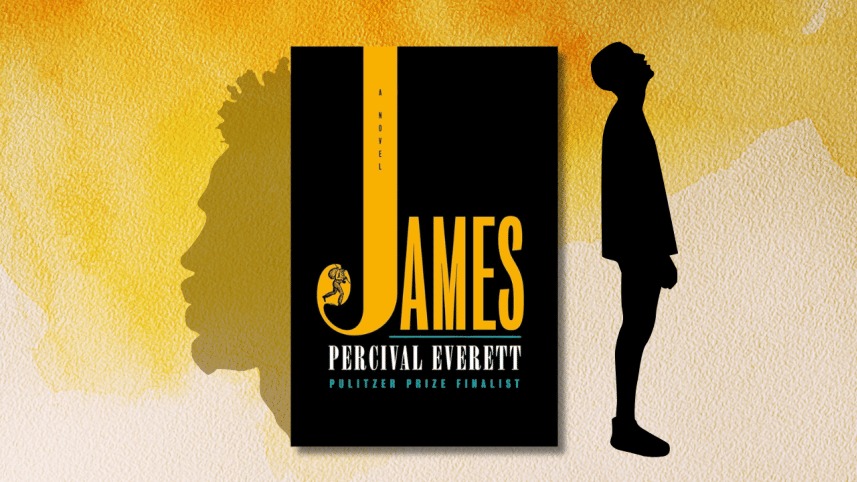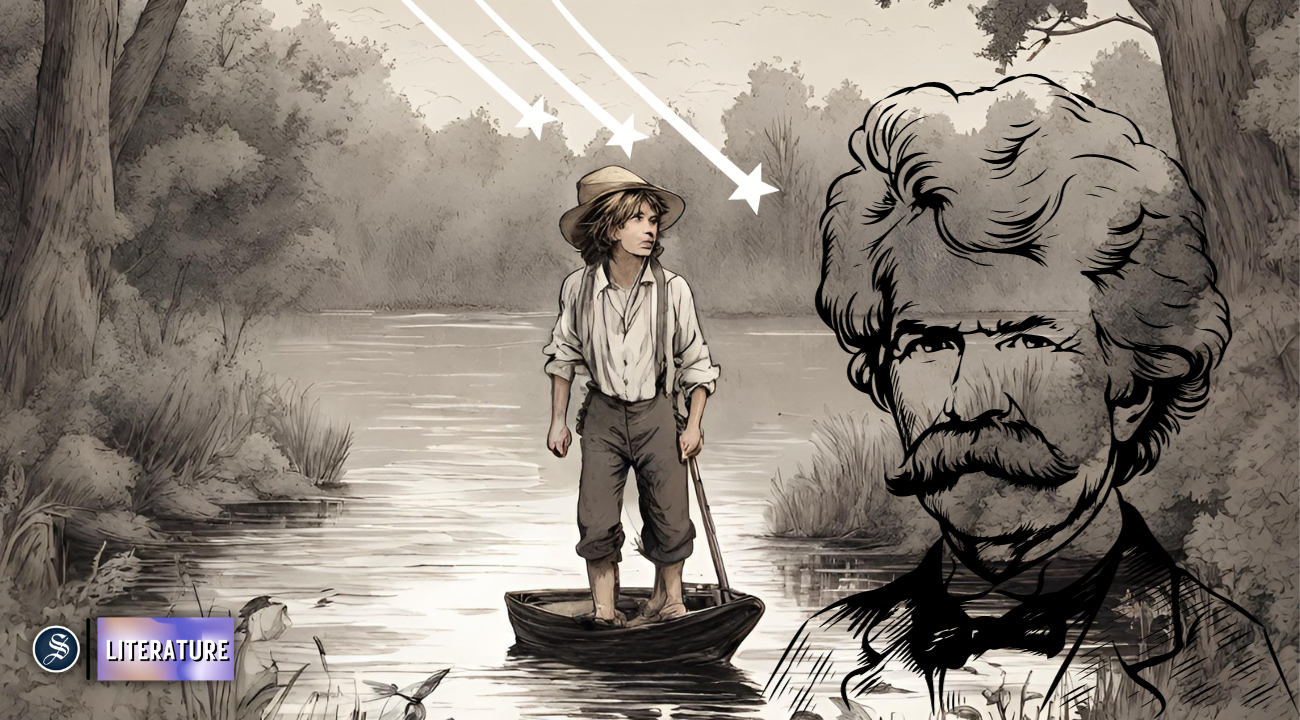‘Huckleberry Finn’ through the eyes of Jim

Everett's breezy, fast-moving retelling of Mark Twain's The Adventures of Huckleberry Finn (1884) is about putting in some due respect. James, shortlisted for the 2024 Booker Prize, is a play of language, an account of the power of words. Written as a first-person account of the runaway slave Jim from Twain's novel, Everett reimagines the enslaved population in antebellum America to be putting on an act. The "slave-talk" that we associate with them is merely a disguise to ward off white people's suspicions. Jim is not the mild-mannered stereotype, but an introspective thinker, who can read and write. He has conversations in his head with Voltaire and John Locke. He plans to write his own story, going to great lengths to procure a mere pencil to tell his tale. A pencil that leads to the torture of his fellow enslaved, but one James keeps with him throughout his journey thereafter.
James flees at the start of the novel when he hears rumours he will be sold off and finds Huckleberry on the run too, who had heard his abusive father has returned to town. The both of them grow friendly. But James is wary of letting go of his slave-talk and continues to act dumb in front of the young boy. He explains the reasons behind this act: "White folks expect us to sound a certain way and it can only help if we don't disappoint them."
James flees at the start of the novel when he hears rumours he will be sold off and finds Huckleberry on the run too, who had heard his abusive father has returned to town. The both of them grow friendly.
This decision by the author inevitably adds a layer underneath Mark Twain's original story, and much of the comedy in the novel comes through knowing Twain's memorable characters from a new perspective. Everett takes white entitlement to the extremes of hilarity when James, at one point of his adventures, finds himself sold to a group calling themselves the Virginia Minstrels. He realises he has to pretend to be a white man pretending to be black in blackface and sing, as the previous tenor had up and left. "Never had a situation felt so absurd, surreal and ridiculous," says James, "And I had spent my life as a slave." Everett's James here hits to the core ludicrousness of a society that finds nothing at fault with chattel slavery.
Everett's prose freewheels through much of the action with ease. There are many brushes with death, ill-executed plans with swindlers, boat crashes, and raids. The violence is ever present but never is it treated casually nor does it overwhelm the reader. In James, we find a natural story-teller able to temper the readers' expectations much like any modern protagonist.
Huckleberry Finn comes and goes throughout the book, his reunions with James are often taken as good news for the latter, who realises he cares for the boy much more than he wishes to admit. Huck's boyish sense of adventure is a naivety that can well ignore the brutal reality of slavery. With the American Civil War beginning, James and Huck see soldiers march by. Huck marvels at the sight, "A war. Can you believe it?" he says. For Huck, it does not matter which side of the war one fights in as long as the romanticism of war can be experienced. He says this point-blank: "What difference does it make?"
This is the luxury that James cannot have. Even as he is suspicious of white men from both sides of the conflict, only on one end lies heavily the hopes for his freedom.
Everett's James is charming in ways one wishes Twain's Jim had been. Right till the end, he keeps the readers shocked with revelations that may or may not be true. Perhaps Everrett overdoes it a tiny bit when we see James rescuing others with dialogues such as "I am the angel of death, come to offer sweet justice in the night," but as a whole James is a rare retelling that goes beyond derivative spins of modernity on a classic. It is a novel that necessitates serious and needed conversations of the classics we often grew up admiring.
Shahriar Shaams has written for The Business Standard, Dhaka Tribune, and The Daily Star. Find him on Instagram @shahriar.shaams.



 For all latest news, follow The Daily Star's Google News channel.
For all latest news, follow The Daily Star's Google News channel. 

Comments